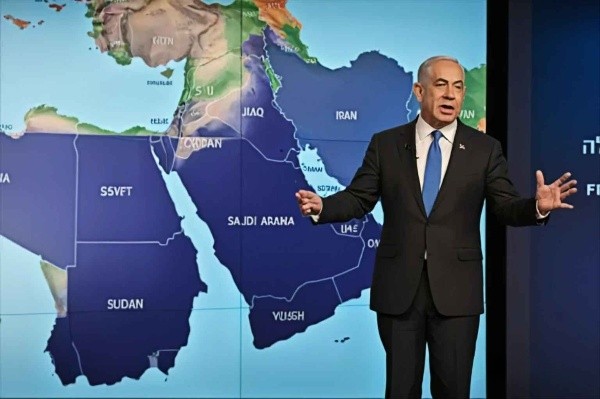Iran’s Plan to Strike Back Against the U.S.
Iran’s Military Preparations Following U.S. Attacks
Loading...

The Philadelphi Corridor has become a point of contention in ceasefire talks as Israel’s war on Gaza grinds on and the Palestinian death toll approaches 41,000.
The Importance of the Philadelphi Corridor
The Philadelphi Corridor, a narrow strip of land approximately 14 kilometers (8.5 miles) long along the Gaza-Egypt border, has emerged as a critical point of contention in ongoing ceasefire negotiations amid Israel's military operations in Gaza. As the conflict escalates, with the Palestinian death toll nearing 41,000, Israeli Prime Minister Benjamin Netanyahu has made it clear that control over this corridor is non-negotiable for Israel. His insistence stems from concerns about security and the potential for Hamas to smuggle weapons and resources across the border.
In late May, a potential agreement between Hamas and Israel hinted at an Israeli withdrawal from Gaza, the release of hostages, and the freeing of Palestinian prisoners. However, Netanyahu's introduction of four non-negotiable conditions, including the retention of control over the Philadelphi Corridor, complicated these discussions. He stated, “The axis of evil needs the Philadelphi Corridor, and for that reason, we must control it”.
Criticism of Netanyahu's Strategy
Despite Netanyahu's claims of security necessity, critics argue that his insistence on controlling the corridor may be more about prolonging the conflict than addressing genuine security concerns. Analysts suggest that Netanyahu is using the corridor as a pretext to avoid making concessions that could lead to a ceasefire or a hostage deal. Zachary Lockman, a Palestine-Israel expert, remarked, “It’s basically an excuse that Netanyahu is using at this point”.
Domestic criticism has also surfaced, with figures like Defense Minister Yoav Gallant condemning the prioritization of the corridor over the lives of hostages. Gallant described this focus as a “moral disgrace”. Military leaders have echoed these sentiments, arguing that maintaining a military presence in the corridor could expose Israeli soldiers to unnecessary risks.
Netanyahu's Political Calculations
Analysts believe that Netanyahu is acutely aware of the precariousness of his political position. With public opinion fluctuating since the onset of the conflict, he faces mounting pressure to deliver results. A July poll indicated that 72% of Israelis wanted him to resign, although a more recent poll showed him trailing his main rival, Benny Gantz, by only one percentage point. This political landscape suggests that Netanyahu may be leveraging the ongoing conflict to consolidate his power and stave off calls for his resignation.
Omar Rahman, a fellow at the Middle East Council on Global Affairs, noted that Netanyahu might believe that as long as there is an external threat, internal divisions within Israeli society can be managed. However, the recent discovery of six Israeli hostages' bodies in Gaza has reignited public outrage and protests against his government, complicating his political calculus.
The Role of Egypt in Ceasefire Negotiations
The Philadelphi Corridor is not only a point of contention for Israel and Hamas but also for Egypt, which plays a mediating role in the ceasefire talks. Egypt opposes an Israeli military presence in the corridor, viewing it as a violation of the peace treaty established in 1979. The Egyptian government faces internal pressure from a pro-Palestinian populace that would likely oppose an armed Israeli presence on its border.
Despite these tensions, Egypt has not threatened to sever its peace agreement with Israel, as it values its relationship with the United States, which provides significant military and economic aid. However, Egypt's increasing vocal criticism of Israeli actions in Gaza indicates a growing frustration with Netanyahu's demands.
Conclusion
Netanyahu's insistence on controlling the Philadelphi Corridor highlights the complex interplay of security, politics, and international relations in the ongoing conflict. As ceasefire negotiations continue, the corridor remains a pivotal issue that could shape the future of Israeli-Palestinian relations and Netanyahu's political survival. The situation underscores the challenges of balancing national security with humanitarian considerations in a deeply fragmented and volatile region.
Editor
Iran’s Military Preparations Following U.S. Attacks
Troops remain in five strategic locations, raising fears of renewed tensions and long-term occupation.
Opposition forces have taken control of the capital after a significant offensive. Here is how it unravelled.
